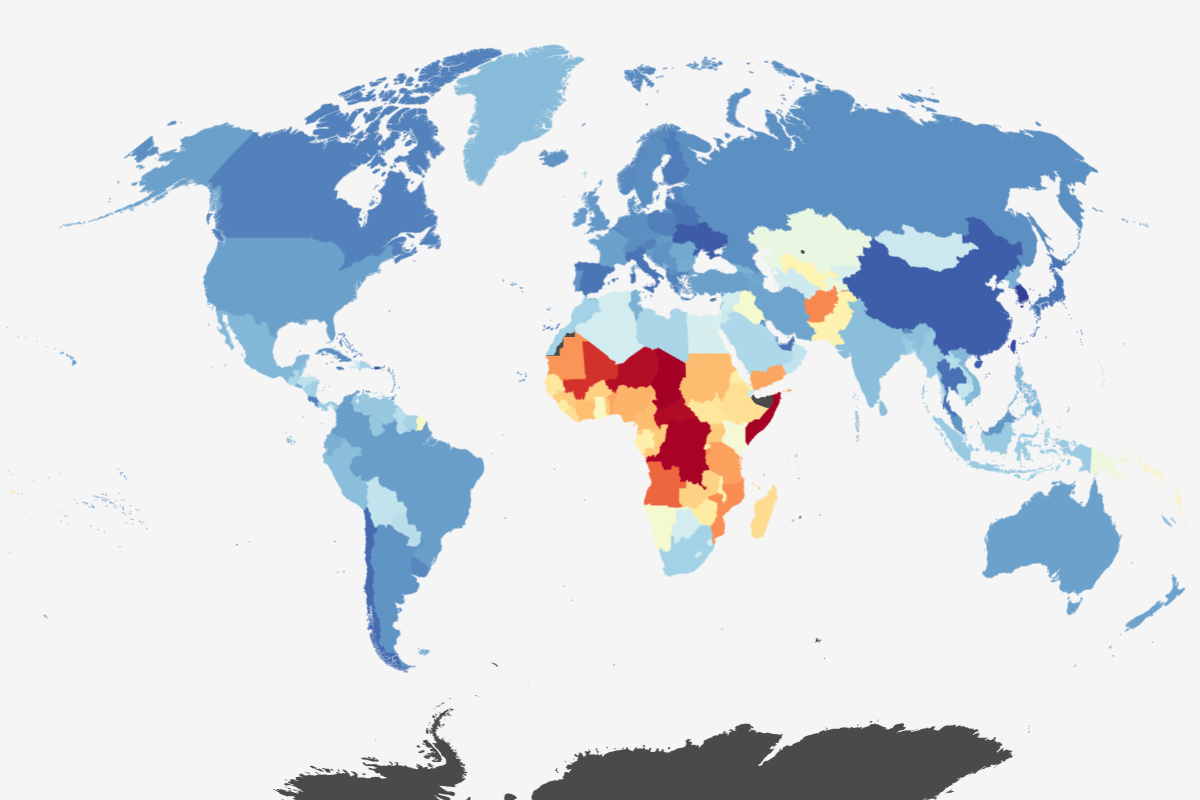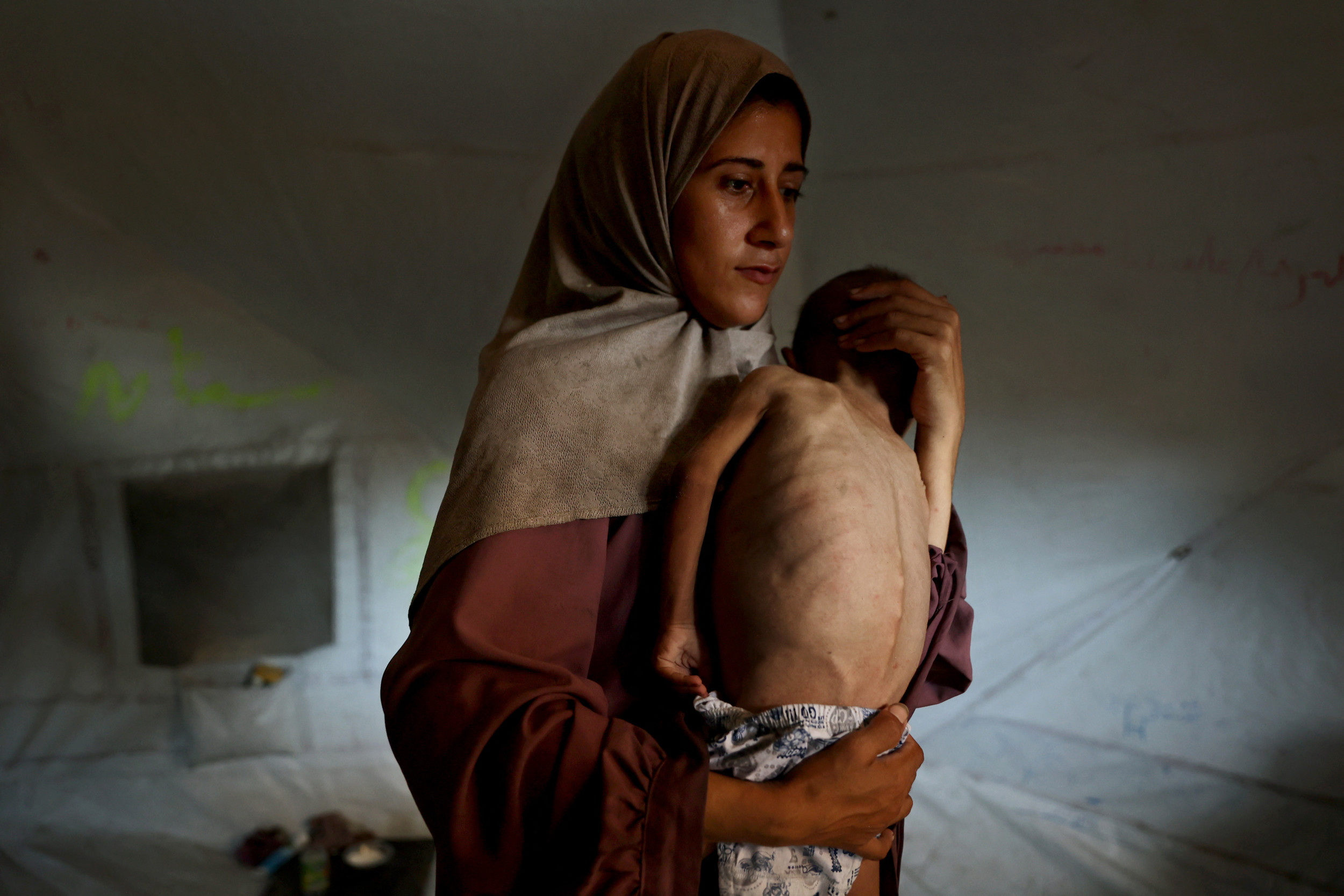🎙️ Voice is AI-generated. Inconsistencies may occur.
Some parts of India have been forced to shut down schools amid the country's declining birth rates.
Economist Sanjeev Sanyal, who was previously the principal economic adviser in India's finance ministry and a member of the Economic Advisory Council to Indian Prime Minister Narendra Modi, has spoken about this happening and called for it to occur "more routinely."
"Our population is only growing now because we are living longer, we are not having enough babies," he told the Indian financial newspaper Mint on Monday. "So our problem is already the case that in parts of the country we have to shut down schools."
"We should be shutting them down," he added. "We are doing them slowly. But we need to do them more routinely. Because whenever I mention that we need to shut down schools, people get very emotional about this issue."
"But in fact, there are many parts of the country, in fact now it would be more than half of the country, where if you do not close and merge schools then they don't have enough cluster children," he continued. "They don't have critical mass."
"So we need to begin to adjust to the fact that our birth rates have radically declined," he said.

India's Birth Rate Problem
India is one of the many countries around the world that is struggling with an aging population, meaning that people will continue to live longer while fertility rates fall.
The nation, the most populous country on Earth, had a fertility rate of 2 (the average number of children a woman has) in 2023, the most recent year for which the World Bank has fertility data. The rate has fallen drastically from 1950, when it was 5.7.
On top of this, the number of people aged 65 or older is projected to double over the next two decades, increasing from 108 million in 2025 to 254 million by 2050, according to the United Nations (U.N.) Population Division.
By then, older people will make up 15 percent of the population, surpassing the number of children under the age of 15 by 2056.
Where Has India Shut Down Schools?
Some 36 government primary schools were shut down in the two academic years leading up to 2024 in Goa, India's smallest state, according to the local daily newspaper The Goan Everyday.
Last July, the state's Chief Minister Pramod Sawant said at the Goa Legislative Assembly that the falling birth rate was partially to blame for this, along with the rise in parents sending their kids to aided schools, privately managed schools that receive financial assistance, or "aid," from the government or local authorities.
Altone D'Costa, who is part of the Goa Legislative Assembly, added that the closure of government schools is problematic for several reasons, including that they often serve as community centers in rural areas.
Multiple areas in the mountainous region of Uttarakhand have also shut down schools–although this is also because of large-scale migration out of hill districts, The Times of India reported in September 2024.
In the Himalayan town of Pithoragarh, 21 schools shut down in the academic year 2023-24 while other schools have had to merge.
District Education Officer Tarun Pant said this was because of "fewer children" along with "socio-economic factors" and "mass migration from villages."
Similarly, in the city of Dehradun, in Uttarakhand, 24 schools were shut down in the 2023-24 academic year, after zero students enrolled, according to The Times of India. In the 2022-23 academic year, 15 schools closed.
It is unclear whether India's national government, or its states governments, plan to shut schools down more "routinely" as Sanyal has called for. Newsweek has contacted the country's Ministry of Education, via email, for comment.
The Bigger Picture
In January, Newsweek reported on how India's aging population has led to stories about the elderly being abandoned by their children.
Unique aspects of India's population problem include the fact that there is a disparity between states, meaning population shifts are not the same across the country, with population declining in some states and not others.
Another component is gender inequality with Poonam Muttreja, the executive director of the Population Foundation of India, talking about how the burden of caregiving, whether for children or elderly family members, falls disproportionately on women.
Policies "must enable women to balance work and caregiving effectively," she told Newsweek.
Despite all this, India's working-age population has grown larger than its dependent population since 2018, and this "bulge in the working-age population" is expected to last until 2055, which offers a span of 37 years, the U.N. Population Division said.
"During this period, countries experience a window of opportunity to accelerate economic gains," the division said. "Reaping this 'demographic dividend,' however, depends on sustained investments in education, health, and employment opportunities to enable productive and decent work for young people entering the workforce."
fairness meter
About the writer
Jordan King is a Newsweek reporter based in London, U.K. Her current focus is on religion, health, food safety and ... Read more




